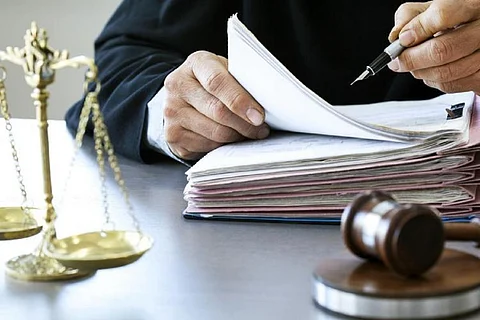

Women lawyers face hurdles not just from family and society, but also, surprisingly, from some constitutional courts.
I’ve heard of a Madras High Court judge who treats women lawyers unequally. When a young lawyer struggles with her representation, he sometimes says, "நீயெல்லாம் ஏம்மா கோர்ட்டுக்கு வர?" This loosely translates to "Why is someone like you coming to court?" I was shocked to hear this.
Outdated ideas of femininity
I do not understand the role of women lawyers’ associations. Once, during a Women’s Day celebration, a women’s advocate association in Madurai organised a cooking competition. I observed how a young woman lawyer was condemned for “not behaving like a woman”. There is inherently nothing wrong with conducting a cooking competition, but male lawyers should have been included to break gender stereotypes. The idea that women belong in the kitchen should not be reinforced.
Women practising in Madurai, especially those from rural backgrounds, are deeply affected by such discouraging remarks. For those training independently, derogatory comments can hinder their confidence and practice. The environment often feels hostile to them. In our society, men are less likely to let such treatment disrupt their work. The judiciary must do more to create opportunities for women.
The dress code for women lawyers in the state is governed by regulations framed by the Bar Council of Tamil Nadu. The Bar Council of Tamil Nadu and Pondicherry has 25 members and has a single woman member. This is a meagre 4% representation.
The Tamil Nadu Bar council has a regulation that prohibits women lawyers from wearing leggings.
For many first-generation women lawyers from marginalised backgrounds, black leggings are an affordable and comfortable choice. They are especially practical for using restrooms during long workdays. How can leggings worn under long robes that reach the ankles be considered ‘indecent’? The bar councils of Kerala and Karnataka do not ban the use of leggings.
Women lawyers on the litigation side in the High Court are heavily outnumbered by men, but we are not intimidated by their presence. However, many of the arguments made in family court appeals reflect outdated and regressive views. This makes it clear that gender sensitivity must be periodically reinforced among male lawyers and judges.
The judges who care about empowerment
There are many judges in the Madras High Court who truly want to empower women.
There is one such judge who often reprimands women lawyers who appear before him for any errors. But his tone always felt more like that of a teacher correcting a student. It did not intimidate us or drive us away from the profession. We never felt threatened in his court. We also appreciated that women and men were treated equally there.
I also want to mention one sitting judge and two retired judges. All three have consistently treated women lawyers with respect.
Kirubakaran (retired) always encouraged women lawyers. He gave them a full hearing and often passed orders that further empowered them. Along with SS Sundar, he was instrumental in providing two-wheelers to young women and male lawyers. This helped them come to court regularly and continue with their practice. He understood that mobility is a lawyer’s asset.
He often appointed women lawyers as court commissioners on several occasions. This showed his commitment to uplifting women in the legal profession, both socially and economically. We truly miss such innovative judges.
There were, and still are, many exceptional women judges on the bench who believe that empowering women also means empowering women lawyers.
G Ilangovan (retired) always encouraged women lawyers, as well as all junior lawyers. He never raised his voice, even in difficult situations. He remained calm while deciding cases. Whenever a young female junior appeared before him, he created a warm and welcoming environment.
I must also mention TS Sivagnanam, who served on the Madurai Bench of the Madras High Court for many years before his transfer and elevation. I had the opportunity to appear before him while he was sitting with D Tharani. It was an exceptionally humane bench. I will never forget that experience. He guided me like a master guiding a student.
I had the chance to represent before TS Sivagnanam while he was sitting with jD Tharani. He was the judge who ordered the closure of the Sterlite plant in Thoothukudi. It was an exceptionally humane Bench. I will never forget that experience. Sivagnanam guided me the way a master guides a student.
I would often observe the proceedings in his court. It was always a valuable learning experience. As senior advocate Fali S Nariman once wrote, current happenings in courts are the best learning spaces. He often made young lawyers, both men and women, feel more important than senior counsel. The Madras High Court and the Madurai Bench truly miss a judge like Sivagnanam.
All of us come to this profession while facing different pressures. Every woman is forced to overcome stereotypes set by parents, spouses, children, and society. We do not seek adoration or special treatment. We seek only equality in court.
Seeni Syed Amma is a first-generation lawyer based in Madurai with ten years of experience in criminal law. Views expressed here are the authors’ own.